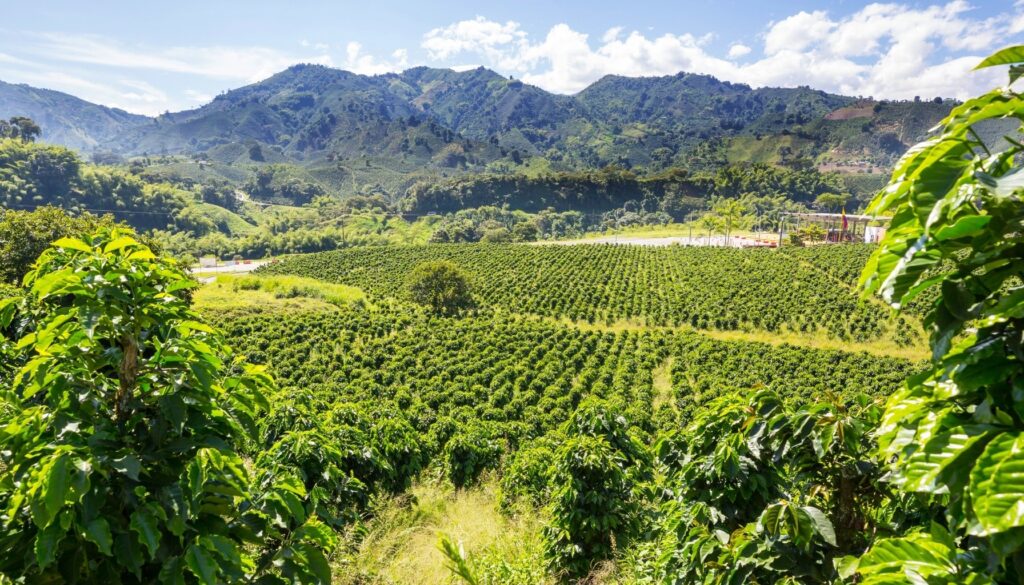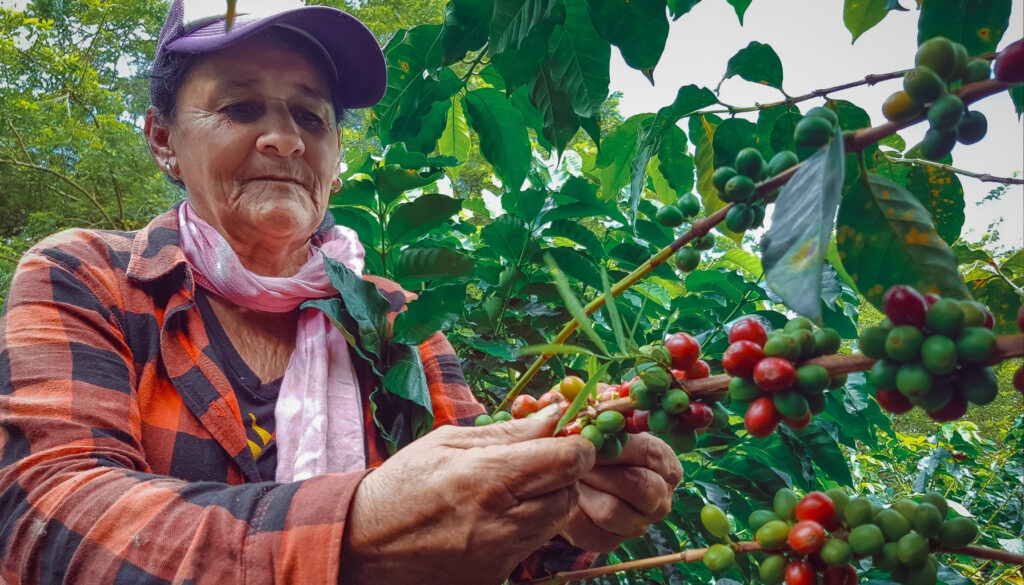In recent years, the coffee industry has witnessed a remarkable transformation, shifting towards sustainability without compromising the indulgence that luxury coffee enthusiasts crave. As eco-conscious coffee brands emerge, they not only prioritize environmental responsibility but also elevate the coffee experience to new heights. This article delves into the intersection of luxury and sustainability, exploring how these two seemingly disparate ideals converge in the realm of premium coffee.
1. The Emergence of Eco-Conscious Coffee
The rise of eco-conscious coffee brands marks a significant shift in consumer preferences. Today, coffee aficionados are increasingly drawn to brands that prioritize sustainable practices. This shift stems from a growing awareness of environmental issues and the impact of climate change on coffee cultivation. As a result, coffee lovers now seek not only exquisite flavors but also assurance that their chosen brands respect the planet.
Moreover, eco-conscious coffee brands cater to a discerning audience that values transparency. They provide detailed information about sourcing, processing, and the environmental impact of their products. This transparency inspires confidence and connects consumers to the journey their coffee has taken from farm to cup.
1.1. The Shift in Consumer Mindset
Transitioning from traditional consumption patterns, consumers are becoming more aware of their choices. The appreciation for gourmet, artisanal offerings has evolved, and now there is an expectation for quality to encompass ethical considerations. Consumers want to invest their money in brands that not only deliver remarkable taste but also embody a commitment to the planet. Consequently, coffee brands that fail to adapt to this new expectation risk losing their market share.
1.2. A Growing Market
The eco-conscious coffee market is expanding as more brands emerge. Global reports indicate a significant increase in sales for brands that prioritize sustainability. This trend is driven not just by consumer desire but also by a growing recognition among companies of the profitability associated with sustainability. Investors are keen to fund brands that promise ethical practices and environmental stewardship, knowing that these elements appeal to an ever-widening customer base.
2. The Allure of Rare Coffee Beans
One of the hallmarks of luxury coffee is the allure of rare beans. Varieties such as Geisha, Kopi Luwak, and Black Ivory showcase the exceptional quality and unique flavor profiles that connoisseurs cherish. These beans often come from specific regions and are cultivated under unique conditions, making them both exclusive and expensive.
For instance, Geisha coffee, originally from Ethiopia, has garnered a cult following due to its floral aroma and complex taste. However, its rarity translates into a hefty price tag; yet aficionados are willing to pay for the experience. Luxury consumers understand that rarity enhances exclusivity, making every sip a treasure.
2.1. The Impact of Terroir
Terroir plays a crucial role in the flavor profiles of rare coffee beans. Terroir encompasses the unique environmental conditions, including soil type, altitude, and climate, that influence the growth of coffee plants. As coffee producers develop distinct flavor profiles unique to their growing regions, they cultivate an attachment to the land. This connection enriches the narrative of premium coffee, as each cup tells a story—one of place and dedication.
2.2. Crafting Unique Experiences
Luxury coffee brands are not just about the beans; they are about the experience that surrounds them. These brands craft narratives around their sourcing and production, inviting consumers to participate in a journey that transcends mere consumption. Tasting events and brewing workshops provide consumers with firsthand experiences of the rarity and craftsmanship involved in producing eco-conscious coffee. Such initiatives create lasting impressions that encourage brand loyalty.
3. Sustainable Sourcing Practices
Sustainable sourcing plays a crucial role in the emergence of eco-conscious coffee brands. These companies prioritize direct trade with farmers, ensuring fair compensation and fostering long-term relationships. By eliminating intermediaries, brands maintain control over the quality and ethical standards of their coffee.
Additionally, sustainable sourcing practices promote biodiversity. Shade-grown coffee methods involve cultivating coffee plants beneath a canopy of trees, helping to preserve ecosystems and support local wildlife. This approach enriches the flavor of the coffee while nurturing the environment, creating a harmonious relationship between luxury and sustainability.
3.1. Fair Trade Initiatives
Many eco-conscious coffee brands participate in Fair Trade initiatives, ensuring that farmers receive a fair price for their crops. These initiatives empower farmers to invest in their communities, allowing for improvements in education, healthcare, and infrastructure. As consumers become more aware of the broader social implications of their purchases, the desire to support Fair Trade-certified brands continues to grow.
3.2. Building Long-Term Relationships
Sustainable sourcing is not just a business strategy; it’s about building relationships. Eco-conscious coffee brands prioritize long-term partnerships with farmers, offering training and support that leads to improved quality and yield. This collaborative approach fosters trust and loyalty, ensuring that both farmers and brands thrive in an increasingly competitive marketplace.
4. The Impact of Climate Change on Coffee Production
Climate change poses a significant threat to coffee production worldwide. Rising temperatures and changing precipitation patterns disrupt traditional growing regions, leading to diminished yields and diminished quality. Eco-conscious coffee brands recognize this challenge and actively work to mitigate its impact.
Many brands invest in research and development to identify climate-resilient coffee varieties. By supporting farmers in adapting to changing conditions, they ensure a sustainable future for both the industry and the communities that rely on coffee for their livelihoods. This commitment to sustainability uplifts the entire coffee ecosystem while delighting consumers with consistently high-quality products.
4.1. Investing in Resilience
Sustainability in the coffee industry begins with investing in climate resilience. By researching and developing coffee varieties that can thrive in changing climates, eco-conscious brands help secure the future of coffee cultivation. Initiatives such as shade-grown coffee and agroforestry practices not only enhance biodiversity but also provide a buffer against the adverse effects of climate change.
4.2. Educating Farmers
Education plays a vital role in empowering farmers to combat the impacts of climate change. Eco-conscious coffee brands often conduct workshops and training programs to teach farmers sustainable practices. Such programs may cover soil management, pest control, and efficient water usage, all of which are essential for adapting to new climatic conditions. This knowledge-sharing fosters a community of resilient coffee producers ready to face future challenges.
5. Innovative Brewing Methods
Eco-conscious coffee brands often embrace innovative brewing methods that enhance the coffee experience while minimizing environmental impact. Techniques like cold brew, siphon brewing, and nitro coffee not only offer distinct flavor profiles but also create a feeling of indulgence.
Cold brew coffee, for instance, utilizes a longer extraction time, resulting in a smooth and less acidic beverage. This method requires less energy than traditional brewing while allowing coffee lovers to enjoy a refreshing treat. Such innovations serve as a testament to the creativity and artistry that eco-conscious brands bring to the table.
5.1. Sustainability in Brewing Equipment
Sustainable brewing methods extend beyond the coffee itself to the equipment used. Coffee makers made from eco-friendly materials, such as biodegradable plastics or sustainably sourced wood, contribute to a greener brewing experience. Many brands are embracing energy-efficient technologies in their production and brewing processes, reducing their overall carbon footprint.
5.2. The Role of Baristas
Baristas are integral to the sustainable coffee experience. They not only craft exquisite brews but also educate consumers on the importance of sustainable practices. Eco-conscious cafés often host workshops where baristas demonstrate innovative brewing methods, emphasizing sustainability while creating unforgettable coffee experiences.
6. The Role of Coffee Certifications
Certifications play a pivotal role in guiding consumers toward eco-conscious coffee choices. Labels such as Fair Trade, Rainforest Alliance, and USDA Organic provide assurance regarding ethical and sustainable practices. By supporting certified brands, consumers contribute to positive change within the coffee industry.
Additionally, these certifications often emphasize transparency. Consumers can trace the origin of their coffee, understanding the journey it took to reach their cup. This sense of connection enhances the luxury experience, allowing coffee lovers to savor their beverage with a deeper appreciation for the craftsmanship involved.
6.1. Building Consumer Confidence
Certifications empower consumers to make informed decisions. The presence of third-party verification fosters trust and confidence, ensuring that their coffee choices align with their values. As consumers increasingly seek transparency, brands that commit to certifications demonstrate their willingness to uphold rigorous standards.
6.2. Expanding Awareness
Coffee certifications often come with educational components. Many organizations provide resources that help consumers understand the significance of certifications and the impact of their choices. This expansion of awareness creates a community of informed coffee lovers who take pride in their sustainable coffee choices.
7. The Experience of Luxury Cafés
The rise of eco-conscious coffee brands also influences the café experience. Luxury cafés now focus on creating serene environments that prioritize sustainability. From ethically sourced furnishings to eco-friendly packaging, these establishments reflect their commitment to the planet.
Moreover, many luxury cafés offer curated tasting experiences that educate consumers about the nuances of different coffee varieties. Baristas often share insights into the sourcing and brewing process, enriching the consumer’s journey. This emphasis on education fosters a deeper connection between consumers and their coffee, enhancing the overall indulgence.
7.1. Designing a Sustainable Café
Eco-conscious cafés prioritize sustainability in their design and operations. Utilizing recycled materials and energy-efficient appliances not only minimizes waste but also creates an inviting atmosphere. The aesthetic choices made in these spaces can reflect the brand’s commitment to sustainability, encouraging consumers to feel good about their choices while enjoying a cup of coffee.
7.2. Connecting with the Community
Luxury cafés that emphasize community engagement often feature local artwork, host events, and collaborate with nearby businesses. This connection fosters a sense of belonging and pride among patrons. By creating a hub for coffee enthusiasts, these cafés encourage consumers to return, knowing they are supporting a brand that aligns with their values.
8. The Consumer’s Role in Sustainability
Today’s consumers wield significant influence over the coffee market. Their preferences shape industry trends, pushing brands to prioritize sustainability. Eco-conscious coffee brands respond by aligning their practices with consumer expectations, creating a cycle of accountability and responsibility.
Moreover, consumers are increasingly willing to spend more on luxury coffee that reflects their values. This willingness to invest in eco-conscious choices not only elevates their own experience but also sends a clear message to the industry: sustainability is a priority.
8.1. The Power of Choice
Every purchase made shapes the market. When consumers choose eco-conscious coffee brands, they support sustainable practices and ethical sourcing. This power of choice is a significant tool in driving the coffee industry toward a more sustainable future. By making informed decisions, consumers can champion brands that prioritize both quality and environmental responsibility.
8.2. Advocating for Change
Consumers also have the power to advocate for change beyond their purchasing choices. By sharing their experiences and knowledge on social media, they can influence their peers and encourage collective action. As discussions around sustainability in coffee gain momentum, consumers contribute to a growing demand for transparency and ethical practices.
9. Supporting Local Coffee Farmers
Eco-conscious coffee brands often focus on supporting local coffee farmers. By establishing direct relationships with growers, these brands ensure that small-scale producers receive fair compensation for their labor. This practice not only empowers communities but also promotes the cultivation of high-quality beans.
In addition, many brands offer training programs to help farmers improve their cultivation techniques and increase yield. This support creates a positive ripple effect within the community, fostering a sense of pride in their product. Coffee lovers who choose to support these brands contribute to the well-being of coffee-growing regions worldwide.
9.1. Celebrating Local Flavors
By collaborating with local farmers, eco-conscious coffee brands celebrate the unique flavors that different regions offer. Specialty coffees derived from specific locales often showcase distinct characteristics that reflect their environment. This recognition of local flavors enriches the consumer experience and provides a platform for farmers to share their stories.
9.2. Building Community Resilience
When coffee brands prioritize local sourcing and support farmers, they contribute to the overall resilience of farming communities. This commitment helps build sustainable economies, reducing dependence on external markets and fostering local pride. As farmers thrive, they can invest in their communities, leading to improvements in education, healthcare, and infrastructure.
10. The Aesthetic of Sustainable Luxury
When it comes to eco-conscious coffee brands, aesthetics play a significant role in the overall experience. Luxury packaging made from sustainable materials enhances the visual appeal of the product while reflecting the brand’s commitment to the environment.
Furthermore, the design of coffee shops often emphasizes natural elements, creating a soothing atmosphere for patrons. This aesthetic choice aligns with the idea that luxury can coexist with sustainability, transforming coffee into an indulgent art form.
10.1. The Role of Design in Branding
Effective branding goes hand-in-hand with aesthetics. Eco-conscious coffee brands utilize design elements that convey their commitment to sustainability. From logos and packaging to the overall ambiance of cafés, these brands intentionally craft a visual identity that aligns with their mission. This branding, rooted in environmental responsibility, resonates with consumers and builds loyalty.
10.2. Emphasizing Experience Over Consumption
The emphasis on aesthetics extends beyond the product; it encompasses the entire experience. Eco-conscious coffee brands encourage consumers to savor their coffee, creating rituals around preparation and consumption. This shift from mere consumption to mindful enjoyment enhances the luxury experience, inviting consumers to appreciate the artistry involved in every cup.
11. The Science of Flavor Profiles
Understanding the science behind flavor profiles elevates the luxury coffee experience. Eco-conscious brands often invest in research to unlock the secrets of taste, exploring factors such as terroir, processing methods, and brewing techniques.
For instance, the origin of the beans significantly influences flavor. Coffee from Colombia may exhibit bright citrus notes, while beans from Sumatra often feature earthy undertones. By educating consumers about these subtleties, eco-conscious brands invite coffee lovers to embark on a sensory journey with each cup.
11.1. The Importance of Coffee Processing
The process of turning coffee cherries into drinkable coffee directly impacts flavor. Processing methods such as washed, natural, or honey affect the final taste of the drink. Eco-conscious brands often showcase the intricacies of these methods, allowing consumers to appreciate the craftsmanship involved.
11.2. Continuous Innovation in Flavor
The exploration of flavor extends beyond established varieties. As eco-conscious brands innovate, they experiment with new blends and processing techniques. This ongoing pursuit of exceptional flavor leads to exciting discoveries, inviting consumers to broaden their palate and indulge in novel experiences.
12. The Fusion of Technology and Tradition
The fusion of technology and traditional methods has created new opportunities for eco-conscious coffee brands. Innovations in processing, roasting, and brewing enhance the quality and consistency of coffee while minimizing waste.
For instance, some brands use precision roasting technology to monitor temperature and duration, ensuring optimal flavor development. This blend of modern techniques and traditional craftsmanship exemplifies how luxury coffee can embrace progress without losing its roots.
12.1. Sustainable Innovations
The integration of technology into coffee production also emphasizes sustainability. Brands are utilizing data analytics to optimize farming practices, reducing water usage and minimizing pesticide applications. Through technology, producers can make informed decisions that enhance both quality and environmental responsibility.
12.2. Commitment to Craftsmanship
Despite the technological advancements, eco-conscious coffee brands remain committed to traditional craftsmanship. Roasters often seek out artisans who respect traditional methods of roasting and brewing. This balance between technology and tradition ensures that while innovation drives sustainability, the essence of quality remains intact.
13. The Global Impact of Coffee Farming
The global demand for coffee has far-reaching implications for farming communities. Eco-conscious coffee brands recognize their responsibility to foster positive change beyond their own operations. Many engage in initiatives that promote reforestation, water conservation, and social equity.
By investing in these initiatives, brands not only enhance their sustainability practices but also support the communities that produce their coffee. This holistic approach underscores the interconnectedness of luxury and responsibility, creating a more equitable coffee industry.
13.1. Reforestation Efforts
Reforestation initiatives serve as a vital component of sustainable coffee farming. Eco-conscious coffee brands often partner with organizations dedicated to restoring ecosystems and planting trees. By supporting these initiatives, brands contribute to biodiversity and help combat climate change.
13.2. Promoting Social Equity
Social equity is another crucial aspect of sustainability. Eco-conscious coffee brands recognize the importance of supporting vulnerable communities within the coffee supply chain. By investing in educational opportunities and social programs, these brands uplift local populations, ensuring that their success is shared.
14. The Rise of Subscription Services
As the trend toward eco-conscious coffee continues, subscription services are gaining popularity. These services often curate selections from various brands, offering consumers a chance to explore unique flavors while supporting sustainable practices.
Additionally, subscription services reduce waste by minimizing packaging and transportation emissions. Eco-conscious consumers enjoy the convenience of having high-quality coffee delivered to their doorstep, all while making responsible choices.
14.1. Convenience Meets Sustainability
Subscription services are designed to align with the lifestyles of eco-conscious consumers. By providing curated selections, these services introduce customers to new brands and flavors they may not have discovered otherwise. Furthermore, the convenience of home delivery means consumers can enjoy luxury coffee without compromising their values.
14.2. Building Community Through Subscription
Many subscription services emphasize community engagement by supporting local farmers and promoting sustainability. Consumers feel connected to the brands they receive, knowing their choices have a positive impact. This community aspect fosters a loyal customer base that appreciates the blend of convenience and responsibility.
15. The Importance of Community Engagement
Eco-conscious coffee brands often prioritize community engagement as part of their mission. Many brands support local initiatives, such


